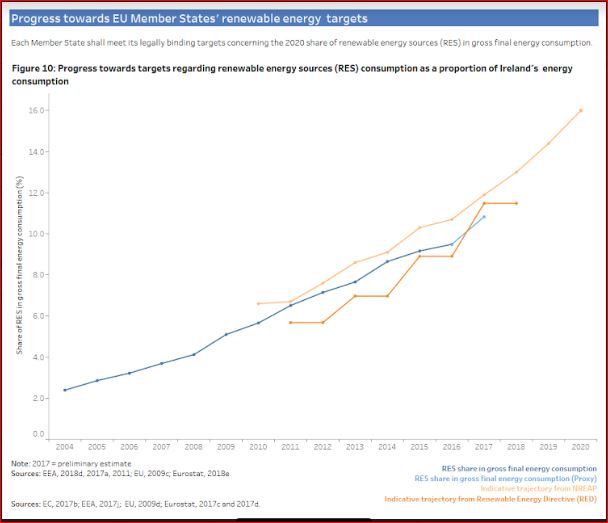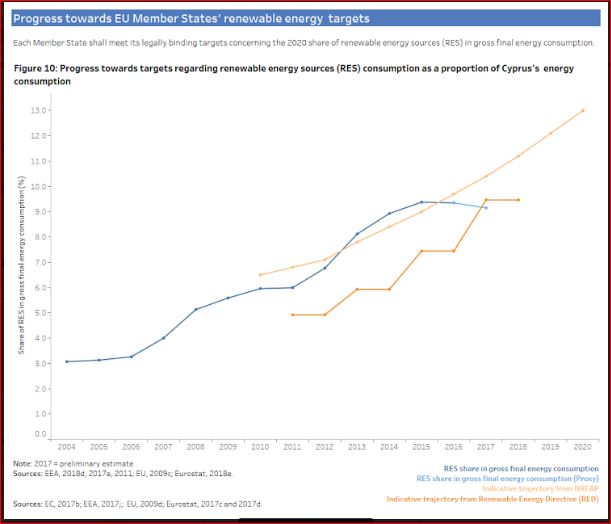The EU makes repeated claims about the importance of the rule of law, but in reality, it fails to comply with its own legal framework and the rights of its citizens are not considered relevant, when it comes to implementing the New Green Deal. The ideological driven planned economies behind the Iron Curtain, with little regard for either environmental impacts or citizen’s rights, left behind a bitter legacy. In response emerged the United Nations Economic Convention for Europe’s (UNECE) Aarhus Convention on “Access to Information, Public Participation in Decision-Making and Access to Justice in Environmental Matters”, which has been part of EU legal framework since 2005. As the EU Commission has clarified:
“Such agreements take precedence over legal acts adopted under the EC Treaty (secondary Community law). So if there was a conflict between a Directive and a Convention, such as the Aarhus Convention, all Community or Member State administrative or judicial bodies would have to apply the provision of the Convention and derogate from the secondary law provision.”As part of this Convention on environmental democracy, obligation placed on contracting parties include "fully integrating environmental considerations in governmental decision making and the consequent need for public authorities to be in possession of accurate, comprehensive and up to date environmental information". That there should, in a transparent and fair framework, be a weighing up of environmental considerations is no different than a key element of EU jurisprudence, the principle of proportionality, which requires that :
“Measures adopted by EU institutions do not exceed the limits of what is appropriate and necessary in order to attain the objectives legitimately pursued by the legislation in question; when there is a choice between several appropriate measures, recourse must be had to the least onerous, and the disadvantages caused must not be disproportionate to the aims pursued”.
As Recital 15 of Directive 2009/28/EC demonstrates, the EU’s 20% by 2020 renewable target was shared out among the Member States based on the existing percentage of renewables and a ‘fudge factor’ based on GDP. No environmental information existed on what was to be built, where it was to be built, what were the impacts and mitigation measures, etc. Having zero information to quantify the negative impact of carbon emissions, the alleged benefit of the 20% renewable target was related to the expected future price of carbon on the EU emissions trading scheme. A price, which is driven by political decisions related to allocations of carbon credits, with zero relationship to environmental impacts. Hence, what resulted was a circular logic of political target setting in the absence of reasoned decision making, with a complete absence of environmental information to justify the enormous impacts on the European environment and energy markets.
This glaring democratic deficit was compounded by the supranational dynamics of the EU, where Directives before adoption should first be scrutinised by public participation at the Member State level, such as in Ireland by detailed Regulatory Impact Analysis with public engagement. However, in practice this was by-passed.
After adoption of Directive 2009/28/EC there was only a year for Member States to prepare National Renewable Energy Action Plans (NREAPs) to implement these renewable targets. The Member States essentially left the section on the environmental impacts of these NREAPs blank, as it was an optional requirement in the EU template. Such plans are also subject before adoption to the detailed requirements of the EU’s Directive on Strategic Environmental Assessment (2001/42/EC), in order to establish the justification, alternatives, impacts, mitigation measures and monitoring for unforeseen adverse impacts. This was also bypassed.
Such legal failures led to a compliance case against the EU at the UNECE (ACCC/C/2010/54) and in 2014 a subsequent declaration of legal non-compliance in International law: Decision V/9g of the Meeting of the Parties on compliance by the European Union with its obligations under the Aarhus Convention. The UNECE recommendations require the EU to:
“…. adopt a proper regulatory framework and/or clear instructions for implementing article 7 of the Convention with respect to the adoption of NREAPs. This would entail that the Party concerned ensure that the arrangements for public participation in its member States are transparent and fair and that within those arrangements the necessary information is provided to the public. In addition, such a regulatory framework and/or clear instructions must ensure that the requirements of article 6, paragraphs 3, 4 and 8, of the Convention are met, including reasonable time frames, allowing sufficient time for informing the public and for the public to prepare and participate effectively, allowing for early public participation when all options are open, and ensuring that due account is taken of the outcome of the public participation. Moreover, the Party concerned must adapt the manner in which it evaluates NREAPs accordingly”.
As the UNECE documentation records, the EU has since 2014 failed to make any progress to comply with the recommendations above, repeatedly failing to reply to specific questions and advice. Furthermore, at the subsequent 2017 UNECE Meeting of the Parties, it blocked with its 28 votes, a further decision of non-compliance against it. Namely its refusal to provide its citizens with effective access to justice, in order to bring such challenges of non-compliance of EU environmental law directly into the Court of Justice of the European Union. Ongoing UNECE compliance proceedings have further expanded to include Regulation 2018/1999 on the Energy Union and Climate Action and the manner in which the National Energy and Climate Plans (NECPs) were adopted. Yet again, the legal requirements of Strategic Environmental Assessment were bypassed and the public had no opportunity to participate in the decision-making, when all options were open and effective public participation could take place.
If we consider the 2018 World Health Organisation’s Environmental Noise Guidelines for the European Region, while these adopted conditional recommendations for wind turbine noise, they make it very clear: “There are serious issues with noise exposure assessment related to wind turbines”.
“Balance of benefits versus harms and burdens: Further work is required to assess fully the benefits and harms of exposure to environmental noise from wind turbines and to clarify whether the potential benefits associated with reducing exposure to environmental noise for individuals living in the vicinity of wind turbines outweigh the impact on the development of renewable energy policies in the WHO European Region”.
Significant negative impacts are occurring on rural populations from the impacts of high-energy sources of low frequency sound (infrasound). There are legal liabilities, as the required Strategic Environmental Assessments and associated monitoring for unforeseen adverse environmental effects never occurred.








